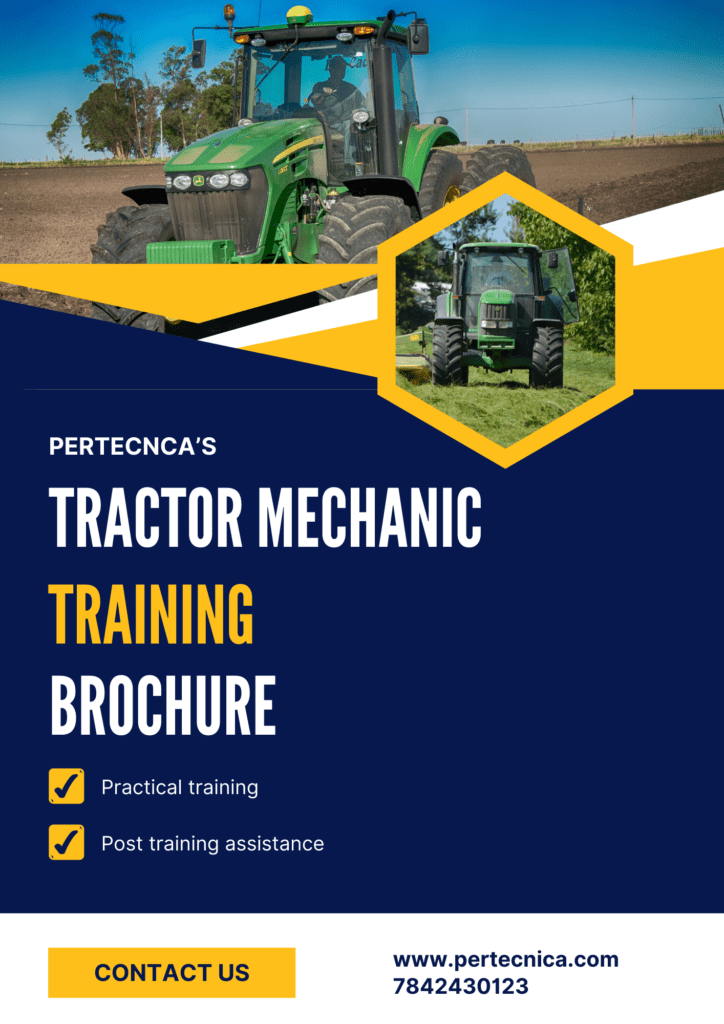Tractor hydraulic systems repair training
The Tractor Hydraulic Systems Repair Training course is designed to provide participants with in-depth knowledge and practical skills for diagnosing, repairing, and maintaining hydraulic systems in tractors. Hydraulic systems play a critical role in the operation of farm equipment, controlling essential functions like lifting, steering, and braking. This course equips trainees with the expertise to troubleshoot hydraulic issues, repair components, and ensure optimal system performance.
Course summary:
This comprehensive training covers the full spectrum of hydraulic system maintenance and repair in tractors. Trainees will learn the principles of hydraulics, how different components interact, and how to address issues that may arise from system failure. The course focuses on providing practical, hands-on training in hydraulic system disassembly, repair, and testing, ensuring participants are job-ready.
Key Takeaways:
- Mastery of hydraulic system components and repair techniques.
- Proficiency in diagnosing hydraulic malfunctions and pressure issues.
- Hands-on experience in maintaining and troubleshooting hydraulic systems.

Practical training
- Hydraulic system diagnostics using gauges and meters.
- Disassembling hydraulic pumps, valves, and cylinders.
- Replacing damaged seals and components in hydraulic systems.
- Testing hydraulic pressure and flow rates.
- Repairing and rebuilding hydraulic cylinders.
- Hydraulic fluid replacement and filtration practices.
- Sealing hydraulic leaks in hoses and connections.
- Real-world scenarios of hydraulic system troubleshooting.
Career scope
Upon completing the Tractor hydraulic systems repair training course, graduates can explore career opportunities in various sectors, including:
- Hydraulic systems mechanic in agricultural workshops.
- Hydraulic repair technician for tractor manufacturers.
- Hydraulic system diagnostic expert in service centers.
- Field technician for farm machinery companies.
- Hydraulic systems consultant for large farms.
- Freelance hydraulic repair specialist for tractors.
- Service technician for heavy equipment dealers.
- Instructor for hydraulic systems in agricultural schools.
- Maintenance technician for hydraulic-powered farm equipment.
- Tractor assembly and testing specialist for hydraulic systems.
